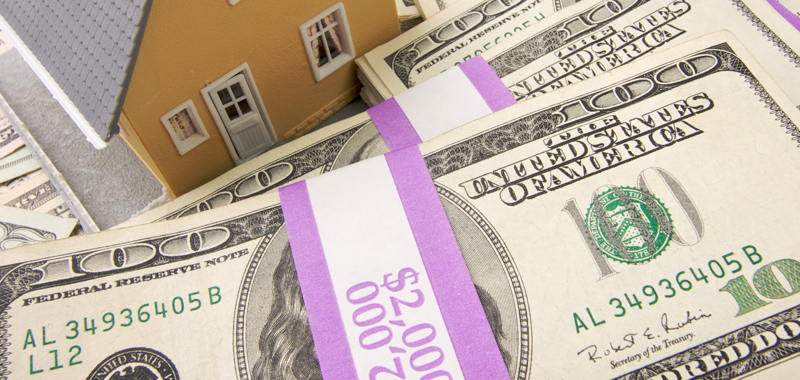Use a Cash-Out Refinance to Boost Your Emergency Fund
According to a January 2017 Bankrate survey, four in 10 Americans have savings they’d rely on in an emergency. An emergency fund is a key part of your financial picture. While nobody can predict the future, it is likely that you will have unexpected expenses. Accidents happen, appliances wear-out…the one thing that is sure is that it pays to be prepared.
Being financially ready helps make life’s emergencies less stressful. But what size safety net do you need?
How Much Should Your Emergency Fund Be?
There’s no “one size fits all” for emergency savings. You’ll need to consider aspects such as your expenses and goals. Three to six months’ worth of money might be a good starting point, but depending on your situation you might need more.
The key to building your emergency fund is to budget for it.
Consider it a regular expense and pay into it consistently. And don’t spend it.
Consider Home Equity to Boost Savings
One option to add to your emergency fund is to use the equity in your home through refinancing. Refinancing has several advantages, including:
- Mortgage interest is tax deductible
- Mortgage interest rates are typically less than credit cards interest rates
Home equity is the amount you owe on your mortgage subtracted from the current market value of your home.
To use the equity from your home, you can consider a cash-out refinance. This creates a new mortgage loan larger than your existing one. You’ll receive the difference between the two loans (equity) after any fees and closing costs.
Here’s an example:
You home is worth about $250,000 and you owe $150,000 on your mortgage.
Your available equity is approximately $100,000 ($250,000 - $150,000).
You’d like to get $40,000 of the equity, making your new mortgage about $190,000 (the $150,000 you still owe plus the $40,000 in equity).
At closing you’d receive the $40,000. The actual amount may be less because of fees and closing costs.
Try it yourself with our home refinance calculator.
Deciding to Refinance
There are several questions you need to ask yourself before refinancing:
- Is it the right time for me?
- What is my credit score? (A high score means you’re likely to pay less in interest.)
- What are the current interest rates?
- How long do I plan to stay in my house?
- Will I use this money for something other than emergencies?
Remember: Refinancing does have closing costs and associated fees to pay.
Emergency Funds Are for Emergencies
Once you have your emergency fund, remember what it’s for: emergencies. Although you may be tempted to use it for non-emergencies, you’ll be glad it’s there if you ever need it.
With a little preparation and planning, you’ll be ready next time the unexpected happens.
/2016_-_Q1_Year_To_Shine/logo.png)
